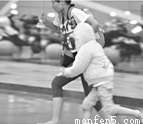0 129875 129883 129889 129893 129899 129901 129905 129911 129913 129919 129925 129929 129931 129935 129941 129943 129949 129953 129955 129959 129961 129965 129967 129969 129970 129971 129973 129974 129975 129977 129979 129983 129985 129989 129991 129995 130001 130003 130009 130013 130015 130019 130025 130031 130033 130039 130043 130045 130051 130055 130061 130069 159627
